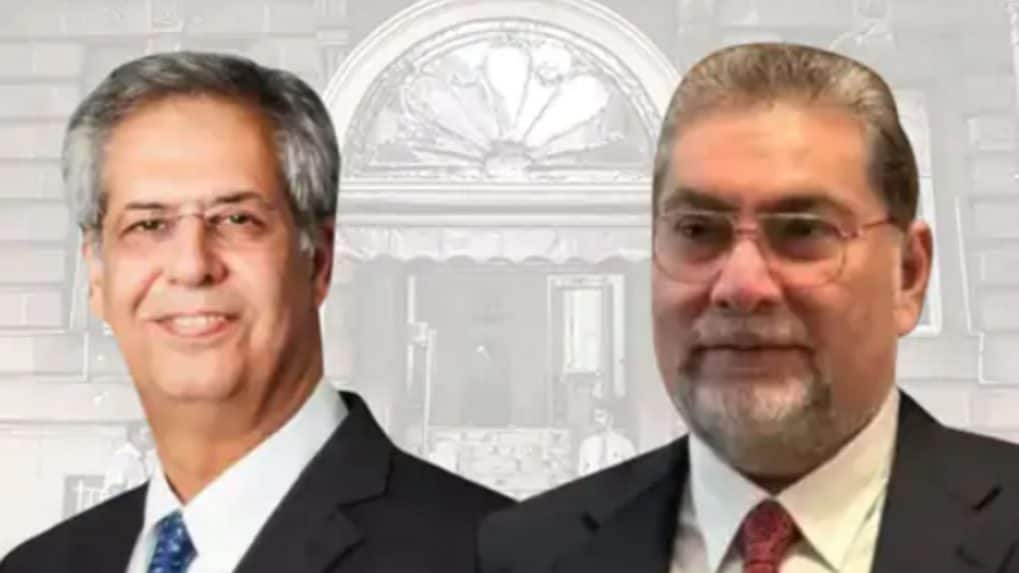How it Works
WPP, Havas, Omnicom: Are advertising’s biggest holdcos recasting agencies as AI Operating Systems?

In a fresh twist within the Tata Trusts, Mehli Mistry — once counted among Ratan Tata’s most trusted confidants — faces removal from his trustee position after key members declined to renew his term. Chairman Noel Tata, vice chairman Venu Srinivasan, and trustee Vijay Singh reportedly withheld their approval for the extension, effectively ending Mistry’s tenure at the helm of the group’s most influential charitable institutions, according to people familiar with the development.
With three trustees opposing his renewal, Mistry’s exit becomes a majority decision across both the Sir Dorabji Tata Trust (SDTT) and the Sir Ratan Tata Trust (SRTT), where he serves as trustee. Between them, the two trusts jointly hold a 51% controlling stake in Tata Sons, the holding company of the Tata conglomerate, while the broader group of trusts together control around 66%.
The SDTT board currently comprises Noel Tata, Venu Srinivasan, Vijay Singh, Mehli Mistry, Pramit Jhaveri, and Darius Khambata. The SRTT board includes Noel Tata, Venu Srinivasan, Vijay Singh, Jimmy Tata, Jehangir HC Jehangir, Mehli Mistry, and Darius Khambata.
As Mistry cannot vote on his own renewal, the decision was taken by the remaining members. Insiders said that since Jimmy Tata does not actively participate in Trust deliberations, the voting majority effectively applied to both trusts.
The decision — conveyed late Thursday night and early Friday morning — followed a resolution moved by Tata Trusts CEO Siddharth Sharma last Friday to renew Mistry’s three-year term. While trustees Darius Khambata, Pramit Jhaveri, and Jehangir Jehangir had expressed their consent, the lack of unanimity sealed Mistry’s fate.
In a striking coincidence, Mistry’s removal comes in October — the same month when his late cousin Cyrus Mistry was ousted as chairman of Tata Sons in 2016.
Appointments and major decisions at the Tata Trusts have historically been made unanimously. However, that convention was first broken on September 11 this year — nearly a year after Ratan Tata’s passing — when trustees voted by majority to remove former defence secretary Vijay Singh as a nominee director on the board of Tata Sons. That decision triggered widespread attention, signalling visible fissures within the trusts that serve as custodians of the Tata legacy.
The 1932 trust deed of the Sir Dorabji Tata Trust states that a quorum requires the presence of at least three trustees and that “the decision of a majority of the trustees present at a meeting shall bind the minority.” This clause now serves as the legal basis for Mistry’s removal.
Adding further complexity, a resolution adopted on October 17 last year — nine days after Ratan Tata’s death — had outlined that all trustees, upon completion of their terms, “will be reappointed by the concerned trust without any limit being attached to the period of tenure.” The resolution, meant to ensure continuity, was described by trustees as marking the “moment of transition between two eras.” However, the document reportedly lacks procedural clarity on how such reappointments are to be effected, creating scope for interpretational divergence.
Outside the Trusts, Mehli Mistry is the promoter of the M Pallonji Group, a diversified enterprise with interests spanning industrial painting, shipping, dredging, and automobile dealerships. Several Tata group entities — including Tata Steel, Tata Power, and Tata Nyk Shipping — are listed as associates or clients on the group’s website. Its automotive arm, Sterling Motors, is a dealer for Tata Motors.
Mistry also serves as a trustee of the Breach Candy Hospital Trust, which has received a ₹500 crore infusion from the Tata group for infrastructure upgrades.
Mistry’s family connections add another layer of complexity. He is a cousin — though estranged — of Shapoorji Pallonji Group promoters Shapoor Mistry and his late brother, former Tata Sons chairman Cyrus Mistry. The SP Group, which holds an 18.37% stake in Tata Sons, has been engaged in a protracted dispute with the Tata Trusts, seeking a public listing of Tata Sons to unlock liquidity and reduce debt.
Mistry’s removal underscores the deepening divisions within the Tata Trusts following the passing of Ratan Tata, whose personal influence had long held the group’s complex governance structure together. With back-to-back majority decisions replacing a long-held tradition of consensus, insiders say the group may be entering a new phase — one marked by greater institutional assertion, but also heightened internal discord.
From purpose-driven work and narrative-rich brand films to AI-enabled ideas and creator-led collaborations, the awards reflect the full spectrum of modern creativity.
Read MoreThe Storyboard18 Awards for Creativity have unveiled a Grand Jury comprising some of India’s most influential leaders across advertising, business, policy and culture, positioning it among the country’s most prestigious creative award platforms.